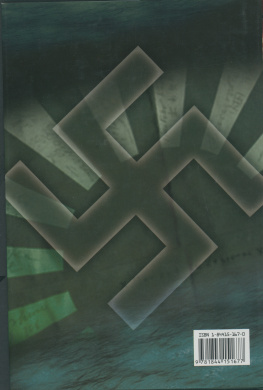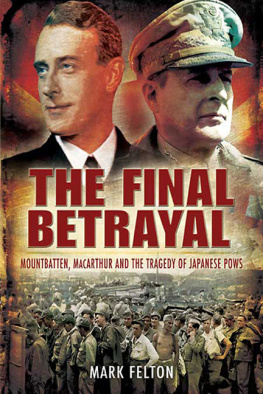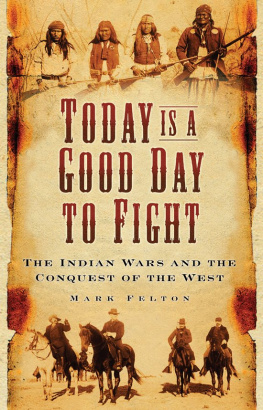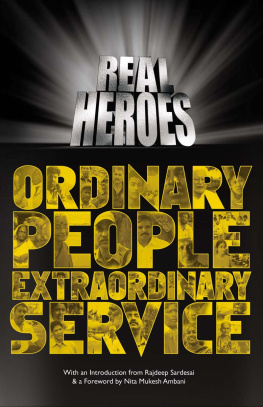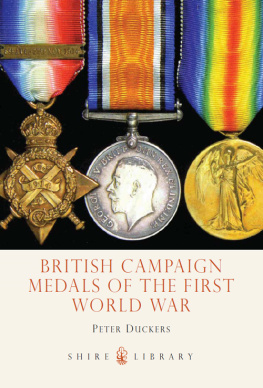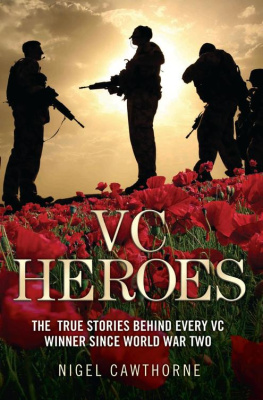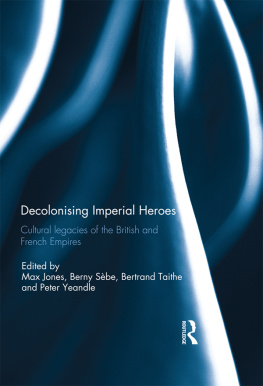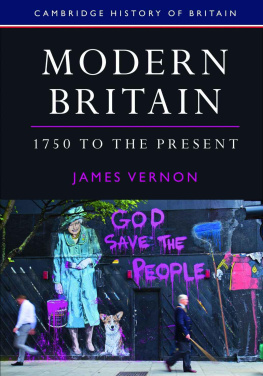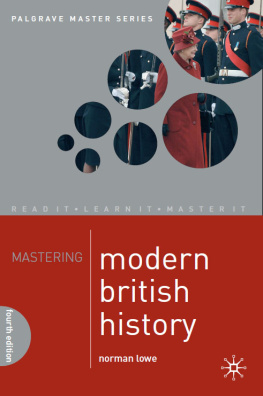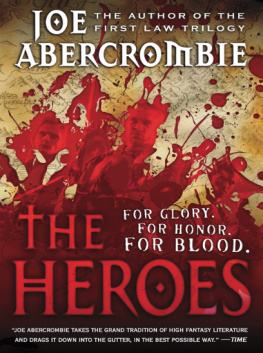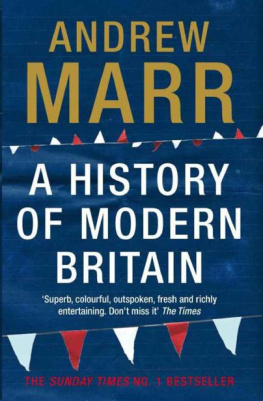First published in Great Britain in 2010 by
Pen & Sword Military
An imprint of
Pen & Sword Books Ltd
47 Church Street
Barnsley
South Yorkshire
S70 2AS
Copyright Mark Felton 2010
ISBN 978 1 84884 073 7
ePub ISBN: 9781844683246
PRC ISBN: 9781844683253
The right of Mark Felton to be identified as Author of this work has been asserted
by him in accordance with the Copyright, Designs and Patents Act 1988.
A CIP catalogue record for this book is
available from the British Library
All rights reserved. No part of this book may be reproduced or transmitted in any
form or by any means, electronic or mechanical including photocopying, recording
or by any information storage and retrieval system, without permission from the
Publisher in writing.
Typeset by Acredula
Printed and bound in England
By MPG
Pen & Sword Books Ltd incorporates the Imprints of Pen & Sword Aviation,
Pen & Sword Family History, Pen & Sword Maritime, Pen & Sword Military,
Wharncliffe Local History, Pen & Sword Select, Pen & Sword Military Classics,
Leo Cooper, Remember When, Seaforth Publishing and Frontline Publishing
For a complete list of Pen & Sword titles please contact
PEN & SWORD BOOKS LIMITED
47 Church Street, Barnsley, South Yorkshire, S70 2AS, England
E-mail:
Website: www.pen-and-sword.co.uk
Acknowledgements
This book has been the most immediate that I have written, and the reader will note that the majority of the research material has come from newspaper reports and stories. Many thanks to the British newspapers that have kindly made their stories available and accessible. I should like to thank Shirley Felton for her assistance in gathering background material in Britain, and for kindly sending documents to me in Shanghai; my thanks to Brigadier Henry Wilson, Helen Vodden, Jonathan Wright and the fantastic staff at Pen and Sword Books for helping to make this project a reality, and a special vote of thanks to my editor Martin Middlebrook for all of your hard work. I must thank my wife, Fang Fang, for her incredible support of my work, and for her very valuable and constructive criticism, and lastly my brother Ben Felton, whose heroic story of a daring underwater rescue told to me by others, convinced me that the stories of modern everyday heroes should be told.
Introduction
People keep talking about the Play Station Generation and saying the youth of today, with their trainers etc, are not up to the taskMy soldiers were all young people of today and they were never once found wanting. They were just as brave and robust as their forbears going right back into history.
Major Nick Calder MC
The Argyll and Sutherland Highlanders, 5th Battalion, The Royal Regiment of Scotland
Ive got your DNA1, shouted William Grove as the robber sped away in a car. In his hand Grove held a black balaclava mask that he had just wrenched from the criminals head as he was in the act of smashing his way through a toughened glass jewellers window with a sledge hammer on a busy street in Richmond, London in 2008. Grove had single-handedly confronted two young robbers who had set about demolishing the jewellers front windows in a daring smash and grab raid. What was even more amazing was that Grove was eighty-four-years-old. Groves bravery caused a great deal of soul-searching in the media about why, out of a large crowd of shoppers and office workers who watched the two men rob the shop, only one very elderly and frail old man had the courage to step forward and intervene. Many editorials came to the conclusion that modern generations of British people are simply no longer possessed of sufficient courage, and that it was an indictment of decades of health and safety legislation, societal breakdown and fear-mongering by the government, police and journalists that had led to a nationwide apathy when it came to having a go. Unsurprisingly, many journalists focused on the fact that Grove was a veteran of the Second World War, Britains greatest generation, and in stepping forward and doing his civic duty Grove epitomized the generation of Britons who had defeated Hitler and crushed Japan. It was a busy day on the high street and there were crowds of shoppers watching, said thirty-five-year-old Nick Thompson. But these days people dont want to have a go in case a robber has a weapon.2
According to a 2005 ICM poll published in the Daily Mail the British are a nation of have-a-go heroes rather than people who like to keep themselves to themselves. Almost everyone keeps an eye on their neighbours property while they are away, said Adrian Grace of Barclays Insurance Services, who commissioned the poll. Almost a third of men and a quarter of women said they would go even further and directly intervene if they saw someone behaving suspiciously. Judging by the stories recounted in this book, probably an equal proportion of British people would also intervene to help someone who was in distress. It appears to be a modern myth that there is a lack of community spirit. We just dont talk about it, said Grace, adding that it is reassuring to know that people look out for each other without being asked.
Modern Britain certainly has its fair share of problems, from youth crime to corrupt politicians, but it is also still a fairly decent society of people who believe that it is ones duty to help others to do the right thing. It is still a gentle land which manages to punch well above its weight on the international stage, a nation confident that being British means more than swearing allegiance to a flag or reciting a National Anthem it means fair play, good manners, charity and compassion. Where else in the world do strangers greet one another so readily with a jaunty good morning: watch how long it takes before two British people smile, laugh or joke in everyday conversation? Watch how freely most British will give of their time to helping the stranger whose car has broken down or who is lost. The British are a welcoming, open and quite often brave and compassionate people, and some of that bravery must be present in every one who believes in the qualities so abundantly found in British society today.
When he was questioned by reporters about his undoubted courage, William Grove said: My reaction was natural and instinctive, you cant have this sort of thing going on. Im not a hero just a responsible citizen, a hero is somebody who jumps into the Thames to rescue a drowning child.3
In writing this book I have discovered that generations of modern Britons are the equal of the Second World War generation. Very little separates them. Bravery has not become devalued, no matter how hard health and safety legislation and the nanny state has tried to devalue the concept, and people will still perform what they see as their human duty to help save the lives of others. It is something instinctual and it is something that spans generations.
Sergeant Stephen McConnell locked his bayonet into place on his SA-80 rifle and, narrowing his eyes against the glare of the harsh Afghan sun, he gave the order to advance. The thirty-two-year-old was commanding 8 Platoon, 1st Battalion, The Royal Irish Regiment, on attachment to 2nd Battalion, The Parachute Regiment. In back of his mind was the thought that this time tomorrow he would be on a military transport plane bound for Britain and some well-deserved leave. Now it looked as though he would be lucky to get out of this situation alive, let alone in one piece to go on leave. The thought made him angry, very angry. OConnell and his men had been tramping across the tan coloured Afghan landscape for an hour and a half that day in July 2008 when suddenly all hell had been let loose. No. 8 Platoon was suddenly assailed from all sides by up to fifty Taliban insurgents. We retaliated and then we fixed bayonets and got our grenades ready and began to advance on them. I went out across an open field to use my bayonet, recalled OConnell. I remember seeing the plough all around my feet jumping up as the bullets hit it.4 The fighting was intense. We had just destroyed the third enemy position when they opened up from the rear. We were by now completely surrounded. They had eight positions pouring fire at us and we kept fighting back. I remember charging at them and yelling: Im going on leave tomorrow and you bastards arent stopping me.5 McConnells citation for the Military Cross contains many phrases that are used to describe the amazing actions made by all of the men and women who appear throughout the pages of this book. Phrases such as outstanding bravery and ignoring his own safety hint at the incredible feats that have been recognized by the British government and society. Without exception, whether military or civilian, the outstanding thing that linked all of these brave men and women together was their concern for others, not themselves, and in many cases they went to such extremes to save other peoples lives that they willingly forfeited their own.


